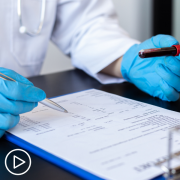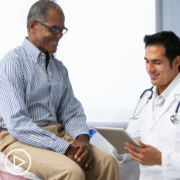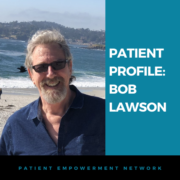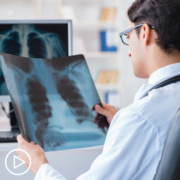Accessing Financial Resources for Lung Cancer Care
Accessing Financial Resources for Lung Cancer Care from Patient Empowerment Network on Vimeo.
Is there financial support for patients that need assistance with the cost of lung cancer care? Dr. Erin Schenk shares advice and resources available to help alleviate the financial burden that some patients and care partners may experience.
Dr. Erin Schenk is a medical oncologist, lung cancer researcher, and assistant professor in the division of medical oncology at the University of Colorado Anschutz Medical Center. Learn more about Dr. Schenk.
See More From INSIST! Lung Cancer
Related Resources:
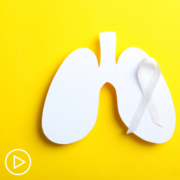
Personalized Lung Cancer Treatment | Key Factors to Consider |
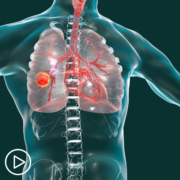
|
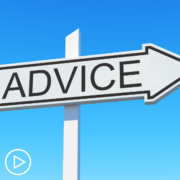
|
Transcript:
Katherine Banwell:
You know, one thing patients are often concerned about is the financial aspect, the financial burden that is involved in their treatment care. How do they deal with that? Are there resources available for them?
Dr. Erin Schenk:
There can be and this definitely can vary based on what treatment you’re being given and where you are, at what institution and what state you’re being treated at since resources are different. But for example, the targeted therapies or the TKIs I made reference to earlier, those can have some significant out-of-pocket costs and most of the, if not all of the manufacturers of those various TKIs have patient assistance programs that help to reduce the out-of-pocket costs for those specific medicines.
When I prescribe a TKI for a patient often what’s part of that is a prior authorization to try to understand what’s the out-of-pocket cost for the patient and then kind of get on top of whether or not we need to apply for patient assistance to help pay for the cost of that medication. So, that’s one way that we can help.
I think, in again, this is specific to my institution and our clinical practice, but we often have – we work very closely with other cancer doctors in the community. So, if traveling to our site is a major burden we can usually have them visit with a oncologist who’s close to them so there’s less travel, there’s less costs in you know gas and staying somewhere. But they still can be connected with us. So, while they can get most of their care under a doctor that’s closer to them, every so often they come back and see me and just talk about how things are going and what you know might be worthwhile to consider down the road.
And I would also recommend that if there are other costs or concerns you know, kind of above and beyond these things that we’ve touched on, connecting with a social worker through the cancer center can be helpful in dealing with paperwork for disability or retirement or sometimes connecting to resources if there’s a childcare need.
Or you’re caring for a spouse and you need additional help at home. You know all of the different burdens that are present in life that just get magnified with a cancer diagnosis and you know, we can – there’s usually a really big attempt to try to find a way to help figure out navigating those so that you can get the care you need.


